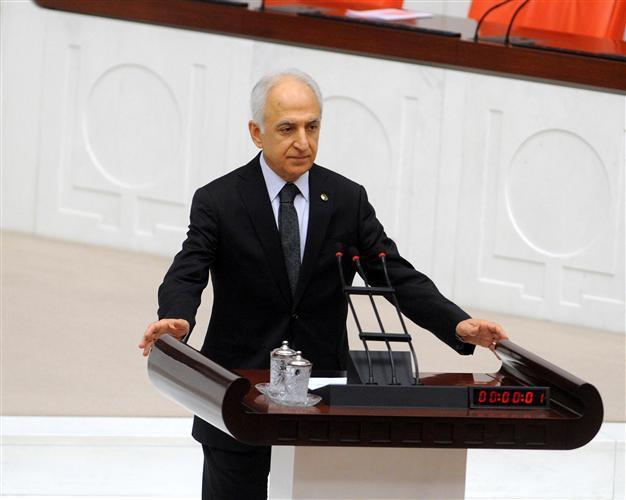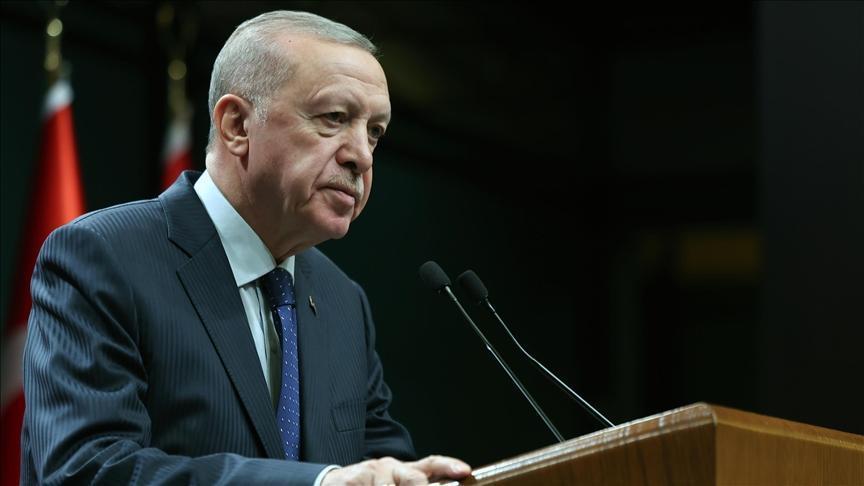Turkey’s chief Ombudsman to accept complaints in Kurdish
Nisan Su Aras ANKARA - Hürriyet Daily News

Turkey’s chief ombudsman Mehmet Nihat Ömeroğlu told Türkiye that the applications had to be made within six months after all other legal avenues have been exhausted. Hürriyet Daily News photo by Selahattin Sönmez
Turkey’s chief ombudsman has announced that applications filed in Kurdish, as well as Arabic and English, will be accepted by the institution, even as officials added that individuals must still follow certain procedures to use a different language in their applications.Sources from ombudsman's office told the Hürriyet Daily News that applications in Kurdish were being accepted in accordance with the institution’s regulation, which calls for “the acceptance of applications in another language in which individuals can better express themselves if the institution deems it rightful and reasonable.”
But political parties represented in Parliament have given a mixed reaction to Chief Ombudsman Mehmet Nihat Ömeroğlu’s recent remarks on permitting applications in languages other than Turkish.
While the ruling Justice and Development Party (AKP) was supportive of the move as it relates to the right to a defense, the main opposition Republican People’s Party (CHP) questioned the ombudsman’s legitimacy as regards to its purported political dependence on the AKP. The Nationalist Movement Party’s (MHP) rhetoric was expectedly harsh, insisting that Turkey’s only official language is Turkish.
Speaking in an interview with daily Türkiye, Ömeroğlu, who began actively working as the country’s first-ever ombudsman March 29, said over 3,525 applications had been sent in the last three months, adding that the institution had provided governor’s offices nationwide with application forms in a range of languages that may help residents better voice their concerns.
Sources also said the alternative language option was not based on preference and that the institution had to check whether individuals really feel more comfortable expressing themselves in another language.
The law states the applications should be made in Turkish, but the institution will allow for multiple language options to better communicate with individuals, said Ömeroğlu.
According to Burhan Kuzu of the ruling AKP, the issue should be reviewed within the framework of fundamental rights and freedoms, meaning the decision by the ombudsman was appropriate in regard to the right to defense.
“If a foreigner is complaining about the administrative authority, he should be able to use his right to petition; he should be able to express his complaint in either English or any other language. One should look at the issue within the framework of the quest for a right,” Kuzu, the head of Parliament’s Constitution Commission, told the Daily News.
“As for Kurdish, this should also be dealt with in regards to rights. There are related rulings by the European Court of Human Rights, and there are certain related articles of the European Convention on Human Rights. At the courts, the right to defense in mother tongue is recognized. Why should it not be used for the right to petition as well?” he added.
Muharrem İnce, deputy parliamentary group chair of the CHP, was overtly critical of the political objectivity of the institution, arguing that it was directly affiliated with the AKP.
“When we look at the institution of the ombudsman, the personnel are either elected from the AKP’s women branch, or from among the former AKP deputies – this does not work as an ombudsman institution. This is not a public auditor, but is an AKP supporter. These are the AKP’s triggermen,” İnce told the Daily News.
“These are the side products of the AKP, the PKK [the Kurdistan Workers’ Party], the BDP [the Peace and Democracy Party] and the [Prime Minister] Recep Tayyip Erdoğan-[jailed PKK leader] Abdullah Öcalan coalition. I would not be surprised if they ban applications in Turkish,” İnce said.
The MHP’s deputy parliamentary group chair, Oktay Vural, deemed the move “unacceptable” and a “scandal.” “I guess we need an ombudsman for this ombudsman, it needs to be audited itself.”
“Has the language of our state changed?” Vural asked. “The language of the Republic of Turkey is Turkish. The duties of ombudsman cannot be carried out to cozy up to the political authority. It has already become a political institution,” he added.
“While the education language of the Republic of Turkey is Turkish, while our language is Turkish, making it official to apply in other languages is to make that language official,” he said.
Göksel Bozkurt from Ankara Office and Dilara Sarı from Istanbul Office contributed to this report.
















